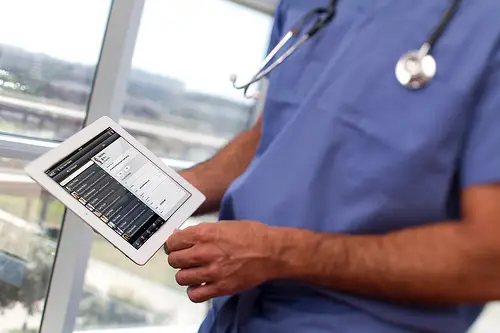
You may be shocked to find out I’m not thrilled about early detection screenings. Well, I guess that’s not the total truth. Under the current system, I think it may do more harm than good to find out you have scoli if you are simply told to “watch and wait”.
In most cases with early detection screenings, kids and teens are sent home with a sheet of paper from the school nurse telling parents they have scoliosis. Cue the parent freak out and the mad dash to the pediatrician who then sends you to an orthopedist who again confirms you have scoliosis. He either gives you the therapy of “watch and wait” (i.e. do nothing, let your scoliosis get worse, so then he can do a huge, unnecessary surgery and put rods and screws in your back) or he will prescribe a hard plastic brace for you to wear. Unfortunately not all braces are created equal and most run-of-the-mill braces don’t produce positive results. Even if it does halt the scoli from progressing, the emotional harm it does on a teenager is horrible.
So, all this emotional hoopla is going on with absolutely no proactive treatment suggested by any of the medical staff you’ve seen. This is why I’m not a fan of the current model of early detection screenings.
Now, I would be a huge fan of early detection screenings in schools if the very first person who gave the hard news of having scoliosis, the school nurse, handed you a guide on how to handle scoliosis. Whether it’s my book, The Beautiful Scoliotic Back, or another book like it, something must be given to guide the entire family.
So maybe the school nurse wasn’t armed with material. Then the pediatrician needs to hand them a book, or even a sheet of paper with books to read, websites to visit, and proactive exercise videos to use at home.
OK, even if the pediatrician doesn’t give you material, maybe the orthopedist that specializes in scoliosis could give you some proactive guidance. Surely that doctor would know some local movement practitioners to refer you to, or even national clinics you could go to.
But no, none of this is usually done. Why do schools, or even pediatrician offices, even offer scoliosis detection screenings if no proactive protocol is suggested and no emotional guidance is given to the family?
I’d love to change the current system. Will you help me? What is one thing that you could do to positively change the early detection screenings? What do you wish you were given when your scoliosis was detected?
Now, it’s your turn: what are your experiences with early detection? Tell me about them in the Comments section below. [/vc_column_text][/vc_column][/vc_row]

Leave a Reply